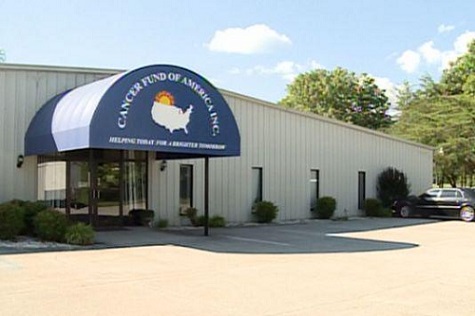
May 19, 2015; CNN
Yesterday, regulators came down like a unified load of bricks on a group of cancer charities—but why did it take so long?
The four cancer charities charged by the 50 states’ attorneys general and the Federal Trade Commission as a sham are all related. They are run by members of the same family—James Reynolds, Sr.; James Reynolds, Jr.; James Junior’s wife, Kristina Hixson; her mother, two sisters, and other near Hixson relations; Senior’s ex-wife Rose Perkins; and others. Two of the four charities are being dissolved due to the FTC complaint, and members of the family face fines in the tens of millions, though the structure of the proposed final order lets the Reynolds family off with much lower personal payments.
Sign up for our free newsletters
Subscribe to NPQ's newsletters to have our top stories delivered directly to your inbox.
By signing up, you agree to our privacy policy and terms of use, and to receive messages from NPQ and our partners.
According to the FTC, the charities spent 97 percent of what they raised on fundraising and on the Reynolds family themselves, devoting only three percent to help cancer patients. All told, according to the government complaint, the charities walked off with as much as $187 million that should have been spent on cancer issues. The groups were “operated as personal fiefdoms characterized by rampant nepotism, flagrant conflicts of interest, and excessive insider compensation.”
Here is what we don’t get. The Reynolds family has long been known to be operating these charities as virtual scams. NPQ wrote about the Reynolds clan back in 2013, drawing on reporting from the Center for Investigative Reporting and the Tampa Bay Times with data going back years before that. We know that it takes time to build cases, but the Reynolds family’s “wretched charity empire,” as we described it, has been a sore thumb among cancer charities for a very long time. It shouldn’t take until all 50 attorneys general plus the Federal Trade Commission come together to scrub the nonprofit sector of the likes of the Reynolds cancer charities.
One more thing we don’t get: As the Washington Post reported, health charities, or rather disease charities have become a big business. While it is unfair to slam all health charities as a result of the Reynolds cancer charity imbroglio, there is no question that more are out there delivering only tiny proportions of their charitable take as legitimate service. Nonprofits don’t like to call for governmental oversight and investigations, but there are nonprofits out there that know other charities that operate much like those of the Reynolds family. The damage caused by Reynolds-like scam charities hurts all charities. The damage is not avoided by nonprofit leaders’ adopting ostrich strategies. Given the distinctive purview of the FTC, it would seem logical that the majority of this responsibility on the governmental side ought to lie with the Internal Revenue Service, but its absence in the Reynolds story is telling. Nonprofits ought to be energized to excise the likes of the Reynolds charities and to nudge the IRS’s tax-exempt unit to function as it should.
And, actually, one more thing: It’s not just health charities. State attorneys general have been issuing report after report about the shady telemarketing and fundraising practices of charities that should be functioning much more reputably, particularly those that purport to be serving military veterans. There is no excuse for letting fundraising scams persist hiding behind 501(c)(3) charitable status. There are national nonprofit organizations that somehow even defended scammy telemarketers under the guise that they are providing valuable information to donors that should be protected as nonprofit free speech, even if they’re raising little money that actually goes to charitable services and functions. The Reynolds imbroglio ought to get nonprofits and the public to take a second, really hard look at the nonprofits and their telemarketer partners that seem to exist more for fundraising than for charitable service.
Too many people look at the nonprofit sector as a profit center for their businesses and for themselves personally. It’s time for the vast majority of legitimate, reputable, ethical nonprofits to join with government regulators at the state and federal levels to clean out the Reynolds clones.—Rick Cohen












